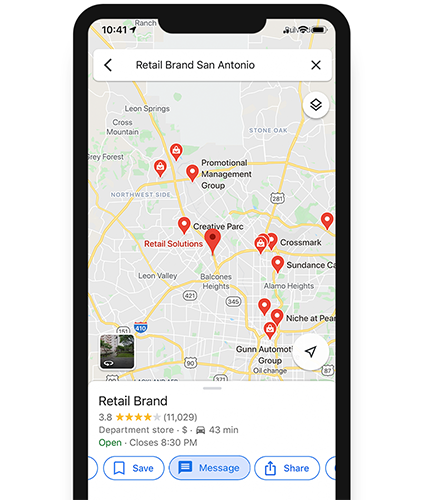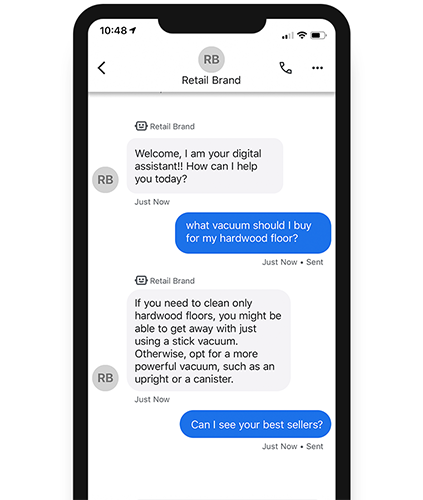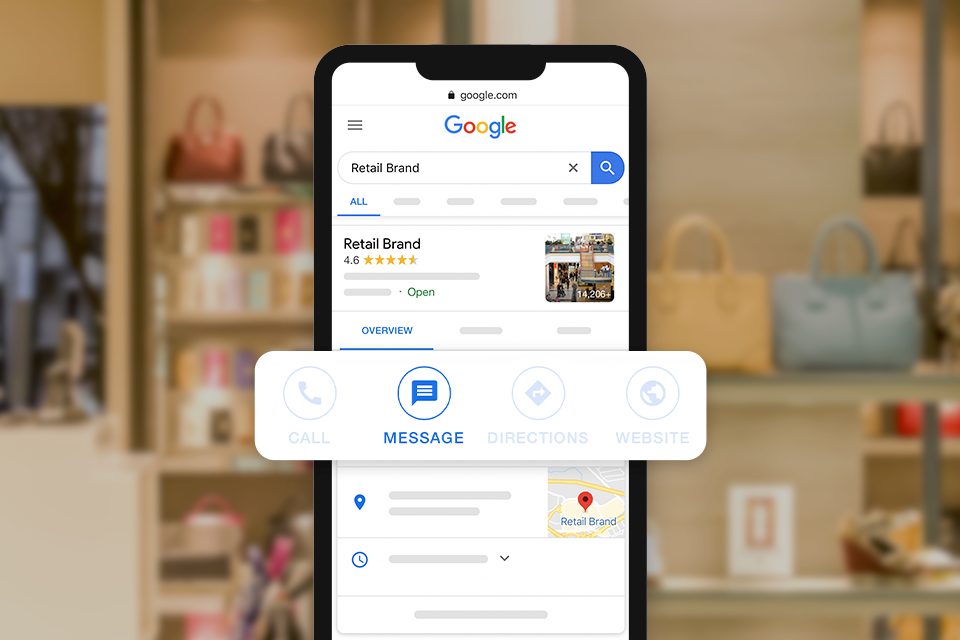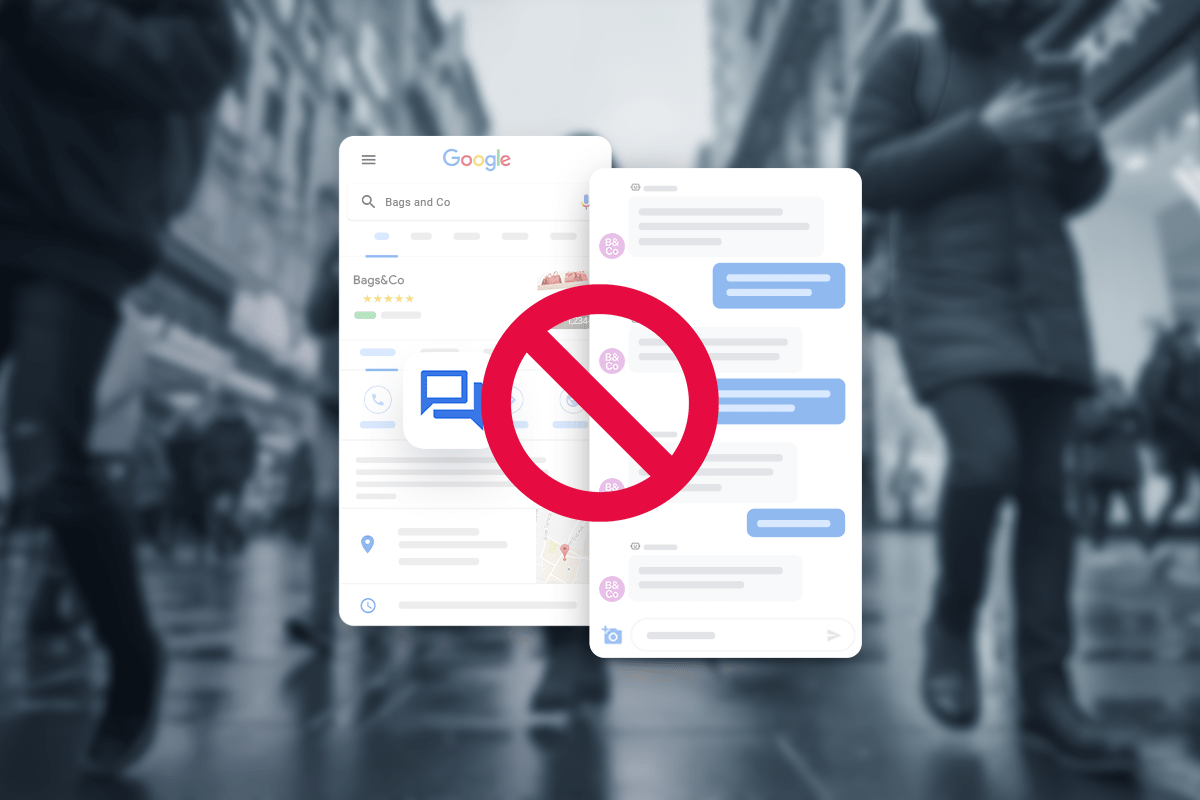Google announced the expansion of Business Messages to their Search and Maps products in June of 2020. With this change consumers are provided the option to message brands directly and ask for the information they are looking for when searching for a business on Google. Quiq has learned a lot about how consumers engage with Business Messages. Read on or reach out to learn more.
The Impact of Google’s Business Messages on Customer Experience
First, this opportunity provides a new channel for consumers to connect with brands through their preferred conversational format. According to a recent Twilio study, nine out of ten consumers said they prefer to use messaging when communicating with brands. By automating Business Messages on Google, brands have the opportunity to reroute a significant volume of inbound inquiries through a channel consumers prefer — self-service messaging.
Additionally, brands that automate Business Messages through Google Search and Maps provide their customers a superior customer support experience that is capable of delivering immediate answers and feedback, 24/7. By being available for customers with immediate, around-the-clock support, retailers are able to drive customer loyalty while simultaneously rerouting support issues from call centers to a new, self-service channel.
Retail and eCommerce Use Cases for Messaging Consumers Through Google
Combining intelligent AI and Google Business Messages provides clear value to eCommerce retailers through three primary use cases:
1. Resolving Customer Support Inquiries for Local Business Locations
First, brands are now empowered to deliver automated customer support to shoppers looking for information from a specific, local business location.

For example, when a customer based in San Antonio searches for their favorite local grocery with the keywords “GroceryBrand San Antonio” they will be provided an option to start a Business Messages conversation with that specific store. With an intelligent automation solution, brands are then empowered to provide customers with specific answers and information related to individual locations. Questions like “what time does your store close?”, “Do you have this particular product in stock?”, or “What is this location’s COVID policy?” can now be answered in a way that is instantaneous, always-on, and without support from a call center.
2. Implementing a First Line of Defense for General Support Inquiries
Brands are also now empowered to position automated support through Google’s Business Messages as their first line of defense for all customer inquiries — not just questions related to an individual business location. For example, a shopper that has an inquiry about a product that they purchased online is now able to search for the brand that they purchased it from, start a Business Messages dialogue with that brand, and get the answers they need in an entirely self-service manner.
3. Driving Leads and Sales Through Conversational Commerce
In addition to driving efficiencies in customer service, automated conversations through Google’s Business Messages also empower brands to support sales and drive incremental revenue through consultative shopping assistance.

For example, when shopping for a new vacuum cleaner online, customers can search for their favorite brand name on Google, open a messaging dialogue through Business Messages, and ask a question like “What vacuum should I buy for my hardwood floor?” By combining Google’s Business Messages with automation, brands can then provide a series of consultative questions and answers to understand the shoppers’ preferences and direct them to their ideal product for purchase.
What to Look for When Evaluating Partners to Help Get Started With Google’s Business Messages
While retailers may be eager to deploy a new messaging channel through Google, it is important for them to be prepared with the right tools and tactics to automate the sudden influx of customer inquiries that it will yield.
But what are the important things to look for while evaluating automation solutions? When our enterprise partners describe what has enabled them to be successful, we often hear that messaging partners must be able to:
-
Deploy highly-personalized AI-powered conversations
Modern consumers demand personalization in their online shopping experiences and interactions with AI-powered digital assistants are no different. A recent Gartner report found that brands that deploy personalized messaging can expect a 16% greater impact on commercial outcomes than retailers who deploy basic automation that is incapable of personalizing their experiences.
-
Deliver actionable insights that empower every team
When engaging in thousands of automated conversations with customers, eCommerce retailers generate a significant amount of customer data that has limitless potential and value for their various teams. Without the assistance of an experienced automation partner, however, this valuable data and insight simply goes to waste. By partnering with an enterprise-tier partner, like Quiq, retailers can ensure that they are properly gathering consumer insights through conversational automation and are able to synthesize that information into practical insights for different teams across the entire organization.
-
Provide hands-on support through a team of award-winning automation experts
Conversational automation is a complex undertaking for any enterprise business and hands-on support is vital for ensuring its success. An effective automation solution is the result of a collaboration between internal teams and a proven, experienced team of conversational experts that can consult on strategy, integration, conversational design, and ongoing optimization.
Ultimately, while Google’s Business Messages provides online retailers a significant opportunity to connect with their customers more, it has to be deployed in the right way to leverage its full capability and avoid common pitfalls and complications. If you are interested in learning more about getting started with deploying automated messaging through Google, please schedule a free consultation with one of our conversational experts today.




